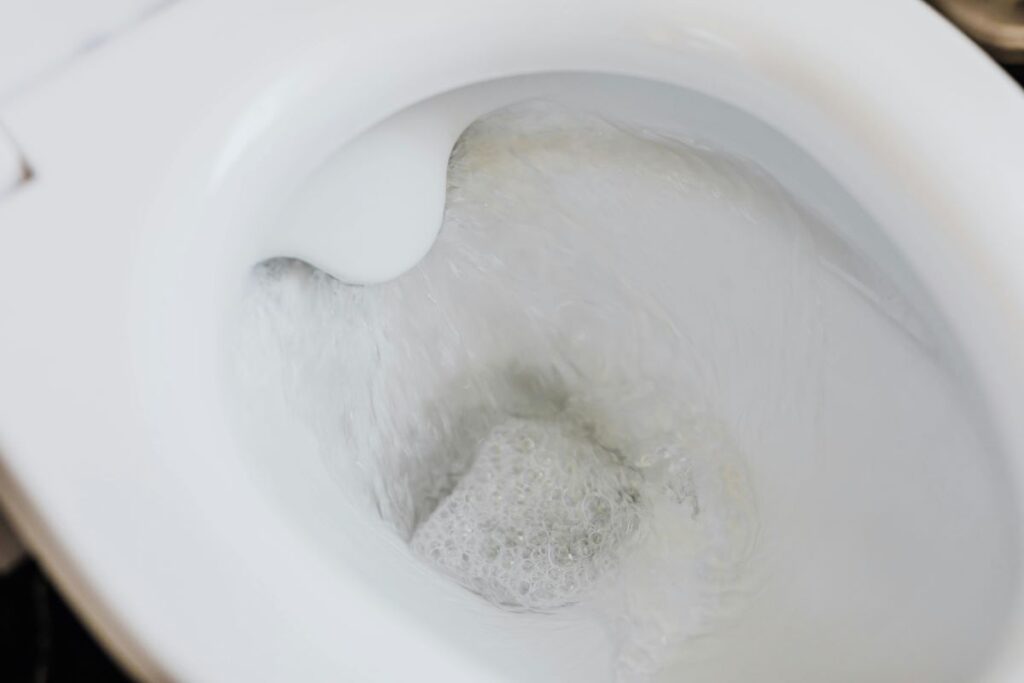With flood warnings already a concern across the UK as we head into winter, Rentokil Specialist Hygiene is issuing an urgent call for action this “Unblocktober” – to rethink what goes down the drain.
Blocked drains and sewers, caused by non-biodegradable items and cooking oils, can combine with heavy rainfall to create the perfect storm for flooding. As pipes become blocked, the pressure can cause them to burst, and potentially lead to sewer flooding, structural damage to properties, and the pollution of rivers and watercourses.
Every year, thousands of households unknowingly contribute to these risks by disposing of items down the drain that cannot break down.
Consumer research* previously commissioned by Rentokil Specialist Hygiene, over a third of people mistakenly think they can flush nail clippings (35%), paper towels (34%) and hair cuttings (34%) down the loo. Meanwhile, over a quarter (26%) think it’s okay to flush a deceased pet fish.
As well as period care products and cooking oils, some of the items people most commonly mistakenly think are safe to flush include:
- Nail clippings (35%)
- Paper towels (34%)
- Hair cuttings (34%)
- Deceased fish (26%)
- Dental floss (19%)
- Tampons (19%)
- Contact lenses (16%)
- Wet wipes / baby wipes (14%)
- Chewing gum (14%)
- Condoms (13%)
- Cooking oil, fat or grease (10%)
- Nappies (9%)
The consumer research was supported by findings gathered from first-hand reports** from expert technicians at Rentokil Specialist Hygiene, and their sister business at Initial Washroom Hygiene, and they demonstrate a potential knowledge gap about what can and can’t be safely flushed down the toilet. Other strange items discovered in toilet bowls included shoes, sandwiches, coat hangers, and vapes.
Many consumers mistakenly believe products such as wipes and sanitary items can dissolve when flushed. In reality, these items contain hidden plastics, contributing to persistent blockages, waterway pollution, and greater flooding risks during periods of heavy rain.
When fats and oils are poured down the drain, they cool and solidify, combining with wipes and other debris to create ‘fatbergs’, large, rock-like blockages that can be extremely difficult and costly to remove.
Jamie Woodhall, UK Technical and Innovations Manager at Rentokil Specialist Hygiene comments: “Blocked drains and sewers are more than just an inconvenience, they can lead to environmental damage, costly clean-ups, and even the flooding of homes and businesses. This Unblocktober, we’re urging the public to think twice before disposing of items down toilets or sinks.
“Only the three P’s – Pee, Poo and Paper, should ever be flushed down toilets. Items such as nappies, period products and wet wipes should always go in a sanitary bin. Kitchen waste like cooking oil or coffee grounds should be placed in food waste bins and seemingly harmless, small items such as cigarette butts and chewing gum should always be put into a bin and never go down the drain.
“Small, simple actions taken at home can make a big difference in protecting our communities, preventing blockages, and keeping our waterways healthy.”





















































